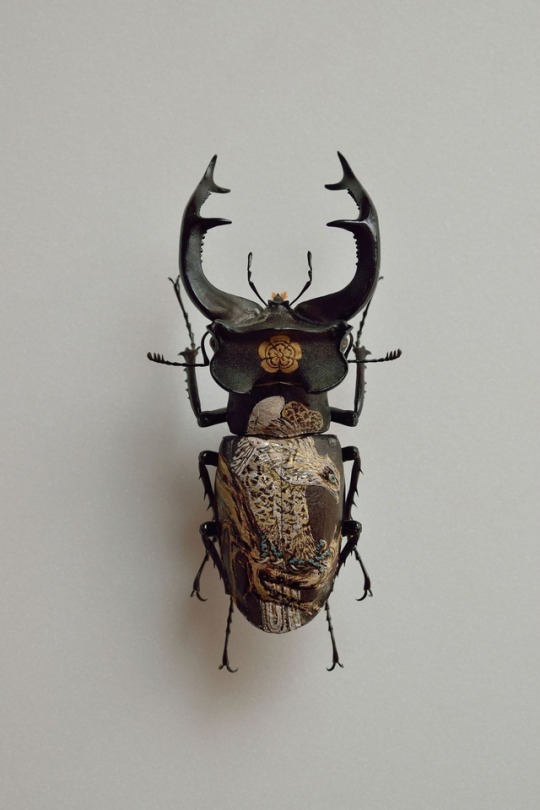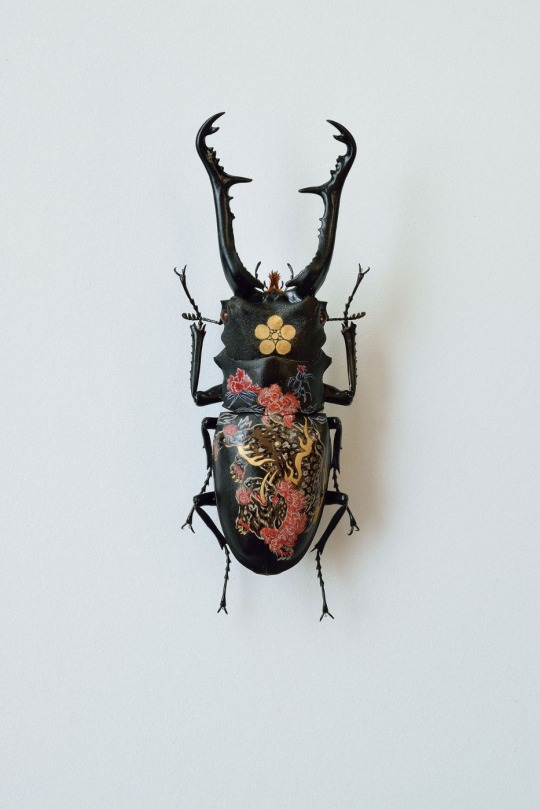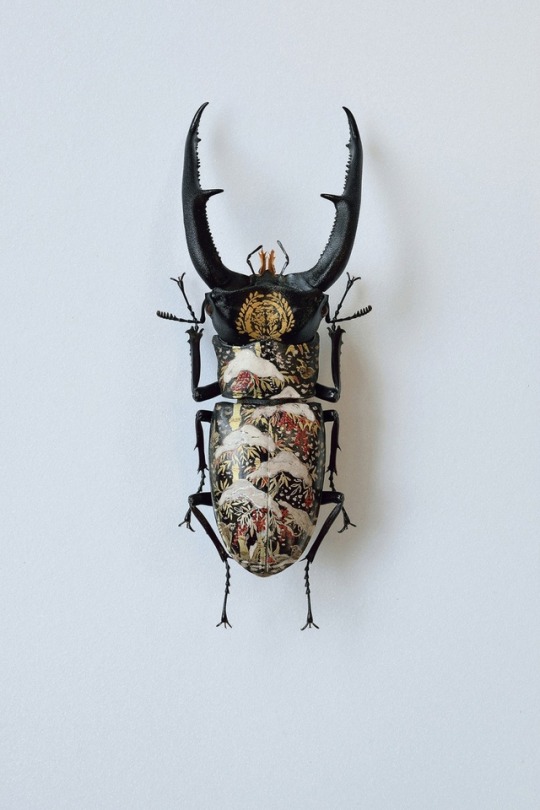Text
Sepsis Associated Encephalopathy.
Cognitive decline.
It helps to finally know, even if it’s not fixable.
6 notes
·
View notes
Text
My sister’s cat is upstairs quietly finishing her life. She doesn’t want me to be part of this transition. Even though she hasn’t seen my sister in years, my sister is the only company the queen will tolerate, and being there in spirit is suitable enough for both. I’m the wreck.
I also now have a name for what went wrong in my brain: sepsis-associated encephalopathy. It wasn’t my imagination that something was fundamentally changed inside, and my cognitive decline is recognizable to the people closest to me.
What a bittersweet day. Beautiful sunset.
Well, because of the fires.
0 notes
Text
“When 18-year-old Bryce Dershem stepped up to the lectern at his New Jersey high school’s graduation ceremony last week, he wanted to share how his battle with mental health was made even more difficult in a senior year marred by the coronavirus pandemic. The class valedictorian, wearing maroon robes and a pride flag draped around his shoulders, began with the customary “thank you” for the parents, teachers and friends in the audience. Then, he launched into his own story. “After I came out as queer freshman year, I felt so alone. I didn’t know who to turn to,” he said, before his microphone suddenly cut out. Eastern Regional High School’s principal walked up to the lectern to grab the microphone, grabbing a paper copy of Dershem’s speech and directing him to read a new one that had been rewritten without any mention of the teenager’s queer identity or mental health struggles, Dershem told The Washington Post. When the principal pointed Dershem to the new speech at the lectern, he “said I was to read that and nothing else,” the teen told The Washington Post. “I don’t know why just a reference to who I was warranted being cut off,” Dershem said. “I was on the verge of tears; I didn’t know what to do.” He decided on the spot to finish his speech from memory.”
— Queer teenager says his school cut his microphone during graduation speech
1K notes
·
View notes
Photo
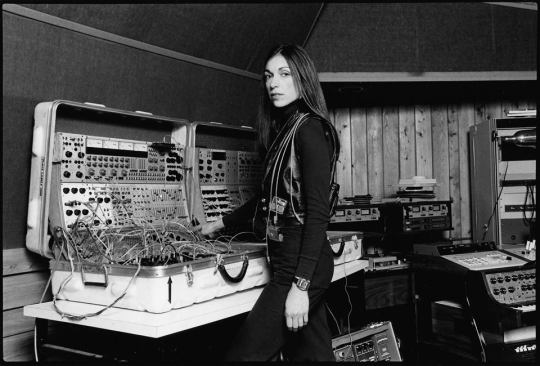
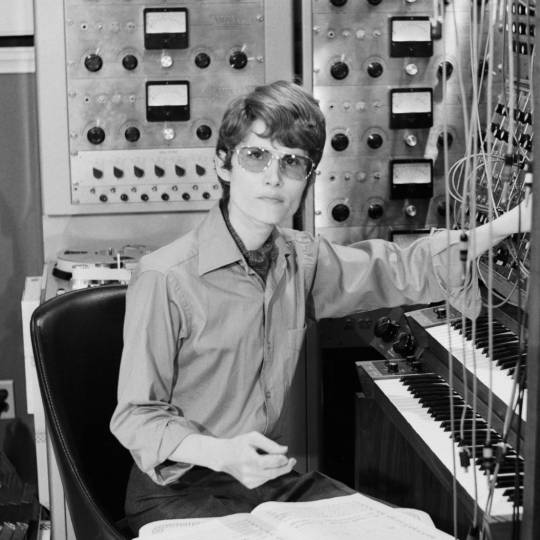
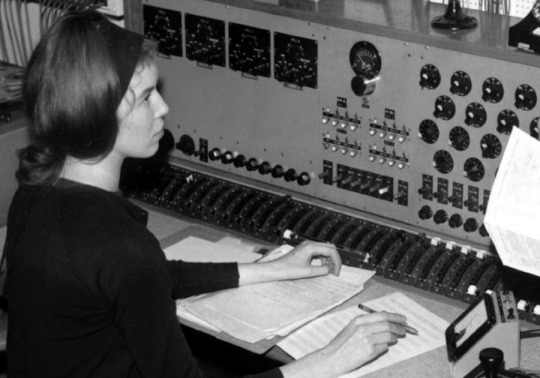
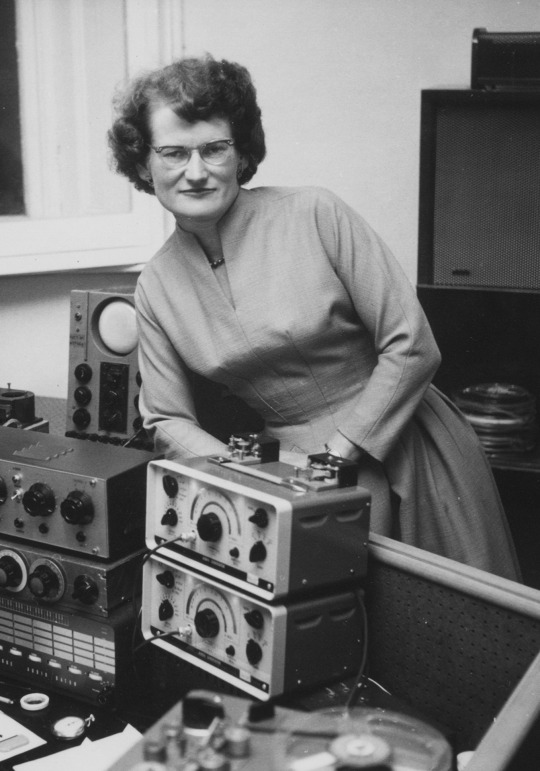
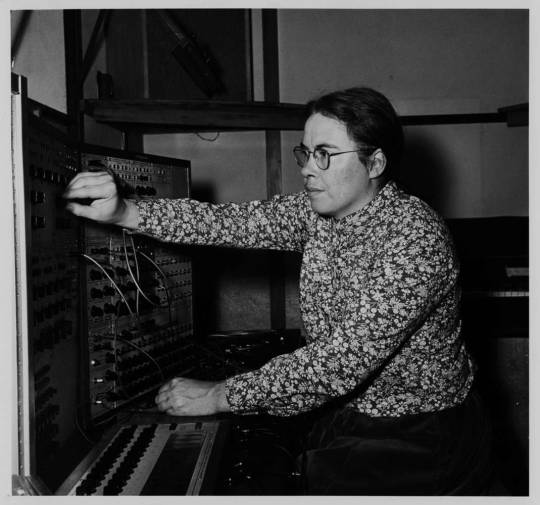

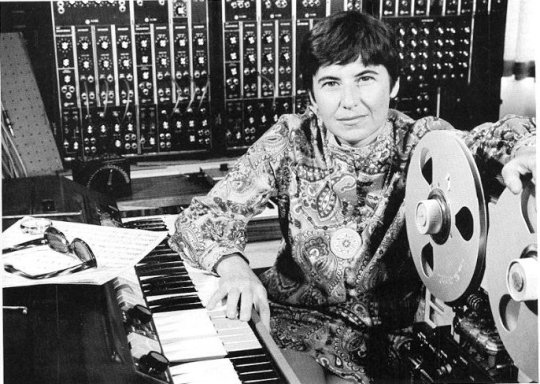
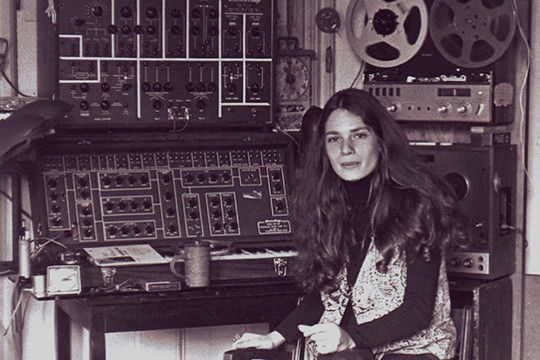


Pioneer Electronic Composers & Expert Knob Twiddlers
Suzanne Ciani - Wendy Carlos - Delia Derbyshire - Daphne Oram - Pauline Oliveros - Maryan Amacher - Ruth White - Laura Spiegel - Elaine Radigue -
13K notes
·
View notes
Text
America’s Greatest Danger isn’t China. It’s Much Closer to Home.
China’s increasingly aggressive geopolitical and economic stance in the world is unleashing a fierce bipartisan backlash in America. That’s fine if it leads to more public investment in basic research, education, and infrastructure – as did the Sputnik shock of the late 1950s. But it poses dangers as well.
More than 60 years ago, the sudden and palpable fear that the Soviet Union was lurching ahead of us shook America out of a postwar complacency and caused the nation to do what it should have been doing for many years. Even though we did it under the pretext of national defense – we called it the National Defense Education Act and the National Defense Highway Act and relied on the Defense Advanced Research Projects Administration for basic research leading to semiconductors, satellite technology, and the Internet – the result was to boost US productivity and American wages for a generation.
When the Soviet Union began to implode, America found its next foil in Japan. Japanese-made cars were taking market share away from the Big Three automakers. Meanwhile, Mitsubishi bought a substantial interest in the Rockefeller Center, Sony purchased Columbia Pictures, and Nintendo considered buying the Seattle Mariners. By the late 1980s and start of the 1990s, countless congressional hearings were held on the Japanese “challenge” to American competitiveness and the Japanese “threat” to American jobs.
A tide of books demonized Japan – Pat Choate’s Agents of Influence alleged Tokyo’s alleged payoffs to influential Americans were designed to achieve “effective political domination over the United States.“ Clyde Prestowitz’s Trading Places argued that because of our failure to respond adequately to the Japanese challenge “the power of the United States and the quality of American life is diminishing rapidly in every respect.” William S Dietrich’s In the Shadow of the Rising Sun claimed Japan “threatens our way of life and ultimately our freedoms as much as past dangers from Nazi Germany and the Soviet Union.“
Robert Zielinski and Nigel Holloway’s Unequal Equities argued that Japan rigged its capital markets to undermine American corporations. Daniel Burstein’s Yen! Japan’s New Financial Empire and Its Threat to America asserted that Japan’s growing power put the United States at risk of falling prey to a “hostile Japanese … world order.”
And on it went: The Japanese Power Game,The Coming War with Japan, Zaibatsu America: How Japanese Firms are Colonizing Vital US Industries, The Silent War, Trade Wars.
But there was no vicious plot. We failed to notice that Japan had invested heavily in its own education and infrastructure – which enabled it to make high-quality products that American consumers wanted to buy. We didn’t see that our own financial system resembled a casino and demanded immediate profits. We overlooked that our educational system left almost 80% of our young people unable to comprehend a news magazine and many others unprepared for work. And our infrastructure of unsafe bridges and potholed roads were draining our productivity.
In the present case of China, the geopolitical rivalry is palpable. Yet at the same time, American corporations and investors are quietly making bundles by running low-wage factories there and selling technology to their Chinese “partners.” And American banks and venture capitalists are busily underwriting deals in China.
I don’t mean to downplay the challenge China represents to the United States. But throughout America’s postwar history it has been easier to blame others than to blame ourselves.
The greatest danger we face today is not coming from China. It is our drift toward proto-fascism. We must be careful not to demonize China so much that we encourage a new paranoia that further distorts our priorities, encourages nativism and xenophobia, and leads to larger military outlays rather than public investments in education, infrastructure, and basic research on which America’s future prosperity and security critically depend.
The central question for America – an ever more diverse America, whose economy and culture are rapidly fusing with the economies and cultures of the rest of the globe – is whether it is possible to rediscover our identity and our mutual responsibility without creating another enemy.
639 notes
·
View notes
Text
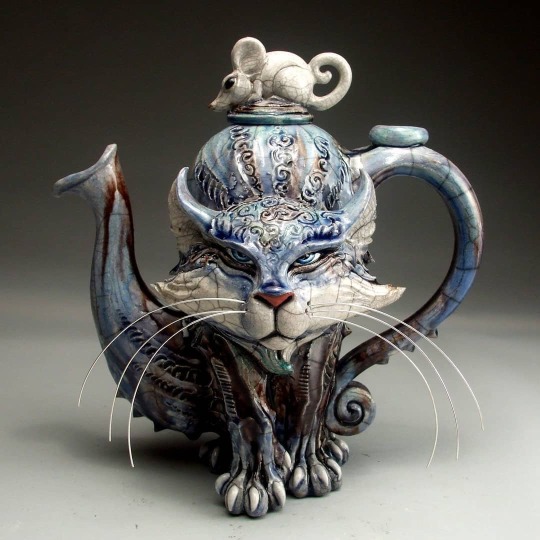

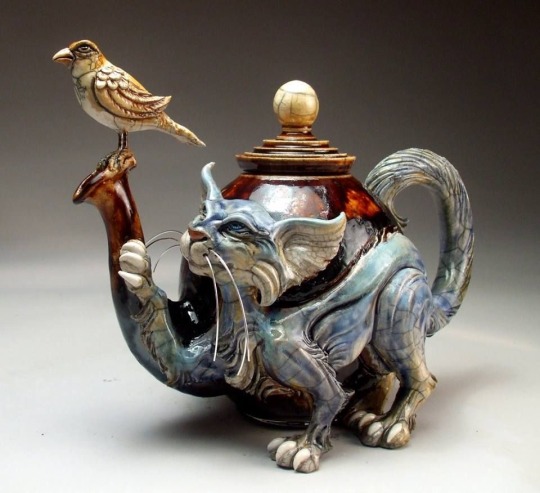



Mitchell Fucking Grafton, ceramics wizard
4 notes
·
View notes
Link
It’s live! My new Patreon is up.
I’ve got three exclusive poems posted for Patrons to read, with more coming soon. Tiers start at just $3 per month, the price of one cup of coffee.
Tiers
$3/month - access to exclusive Patron-only poems and a permanent mention on my site’s Thank You page
$5/month - you’ll also get behind the scenes notes on my poems, so you learn the stories and inspirations that prompted them. Every month, I’ll also post Patron-exclusive looks at my draft notes
$10/month - everything in the previous tiers, plus every month I’ll mail you a physical poetry postcard with an original poem from yours truly. You’ll also get access to Patron-exclusive Q&A posts.
$20/month - everything in the previous tiers, plus a DRM-free ebook copy of every poetry collection or chapbook that I publish while you’re subscribed
$50/month - everything in the previous tiers, plus a free signed print edition of every poetry collection or chapbook that I publish while you’re subscribed
More Patron perks are coming soon – stickers, bookmarks, t-shirts, and more.
Your pledges directly support my poetry – they help pay for my living expenses, so I don’t have to focus on non-poetry work to pay my bills.
Click here to become a Patron today.
16 notes
·
View notes
Text
1947 words in one day after... four years? Three? Five? Too many.
I had to celebrate somewhere. Just a little. 🤏
0 notes
Text
“Do you ever get the feeling that the story’s too damn real and in the present tense?
Or that everybody’s on the stage and you’re the only person sitting in the audience?”
8 notes
·
View notes
Link
It’s live! My new Patreon is up.
I’ve got three exclusive poems posted for Patrons to read, with more coming soon. Tiers start at just $3 per month, the price of one cup of coffee.
Tiers
$3/month - access to exclusive Patron-only poems and a permanent mention on my site’s Thank You page
$5/month - you’ll also get behind the scenes notes on my poems, so you learn the stories and inspirations that prompted them. Every month, I’ll also post Patron-exclusive looks at my draft notes
$10/month - everything in the previous tiers, plus every month I’ll mail you a physical poetry postcard with an original poem from yours truly. You’ll also get access to Patron-exclusive Q&A posts.
$20/month - everything in the previous tiers, plus a DRM-free ebook copy of every poetry collection or chapbook that I publish while you’re subscribed
$50/month - everything in the previous tiers, plus a free signed print edition of every poetry collection or chapbook that I publish while you’re subscribed
More Patron perks are coming soon – stickers, bookmarks, t-shirts, and more.
Your pledges directly support my poetry – they help pay for my living expenses, so I don’t have to focus on non-poetry work to pay my bills.
Click here to become a Patron today.
16 notes
·
View notes
Link
I.
This heart is rusty.
It creaks, it clanks,
it crashes and rattles
and bangs and it breaks
down without you.
II.
I don’t know
what is happening
to the brain in my head.
It’s like it’s full of straw and
I can’t think I can’t think
I can’t think I can’t think
of anything but you
and every time I do
I catch on fire.
III.
You rumble up
like a roar from my chest.
I’m frightened of these sounds
coming out of my mouth
but I like the way they sound
in my teeth.
IV.
Pay no attention to the man
behind this curtain of words.
There’s no place like you.
There’s no place like you,
and I just want to go home.
– Adam Kamerer
http://adamkamerer.com
This poem was originally published under the pen name Gabriel Gadfly.
48 notes
·
View notes
Text
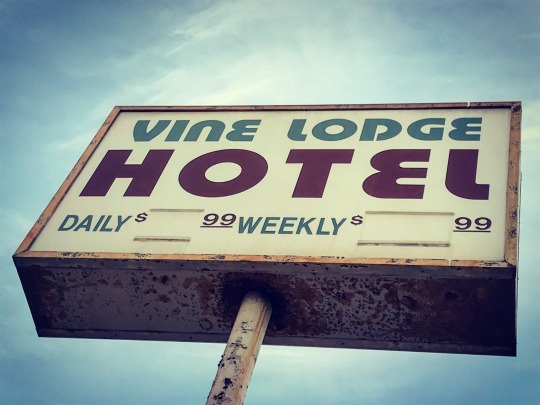
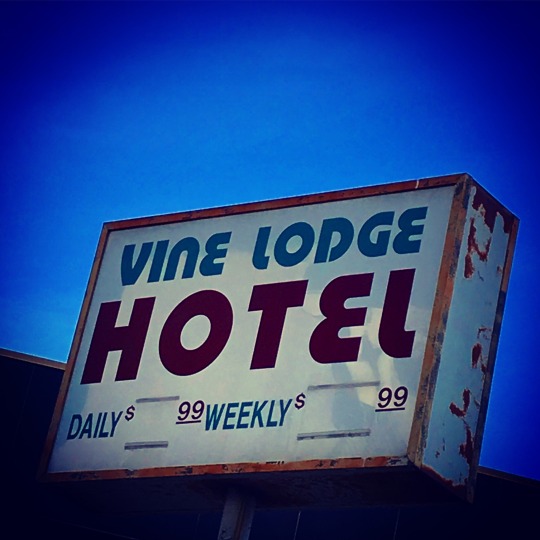
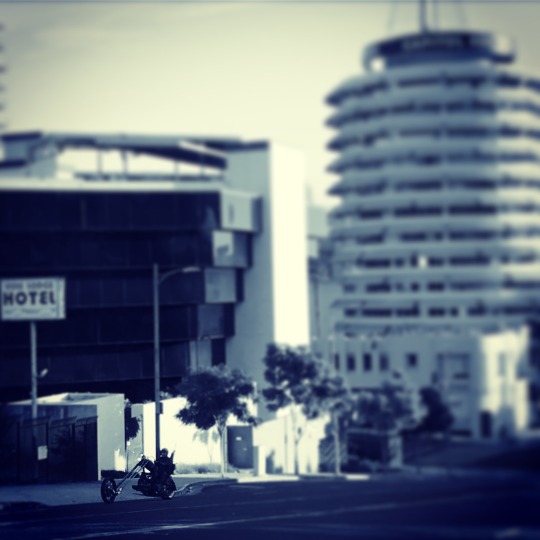
The Vine Lodge is a dodgy Film Noir relic from the 1940s that has somehow survived the development all around it for the last eighty years. It sits right smack dab above Hollywood and Vine - ignored by all.
143 notes
·
View notes
Text
So let's talk about the Lost Generation.
This is the generation that came of age during WWI and the 1918 flu pandemic. They witnessed their world collapse in the first war that spread around the globe, and they -- in retrospect, optimistically -- called it the "war to end all wars". And that war was a quagmire. The trenches on the Western Front were notoriously awful, unsanitary and cold and wet and teeming with sickness, and bloody battles were fought to gain or lose a few feet of territory, and all because a series of alliances caused one assassination in one unstable area to spiral into a brutal large-scale war fought on the ground by people who mostly had no personal stake in the outcomes and gained nothing from winning.
On some of the worst-hit battlefields, the land is still too toxic for plant growth.
And on the heels of this horrific war, a pandemic struck. It's often referred to as "the Spanish flu" because Spain was neutral in the war, and so was the first country to admit that their people were dropping like flies. By the time the warring countries were willing to face the disease, it was far too late to contain it.
Anywhere from 50 to 100 million people worldwide would die from it. 675,000 were in the US.
But once it was finally contained -- anywhere from a year to a year and a half later -- the 20s had begun, and they began roaring.
Hedonism abounded. Alcohol flowed like water in spite of Prohibition. Music and dance and art fluorished. It was the age of Dadaism, an artistic movement of surrealism, absurdism, and abstraction. Women's skirts rose and haircuts shortened in a flamboyant rejection of the social norms of the previous decades. It was a time of glitter and glamour and jazz and flash, and (save for the art that was made) it was mostly skin deep.
Everyone stumbled out of the war and pandemic desperate to forget the horrific things they'd seen and done and all that they'd lost, and lost for nothing.
Reality seemed so pointless. It's not a coincidence that the two codifiers of the fantasy genre -- J.R.R. Tolkein and C.S. Lewis -- both fought in WWI. In fact, they were school friends before the war, and were the only two of their group to return home. Tolkein wanted to rewrite the history of Europe, while Lewis wanted to rebuild faith in the escape from the world.
(There's a reason Frodo goes into the West: physically, he returned to the Shire, but mentally, he never came back from Mordor, and he couldn't live his whole life there. There's a reason three of the Pevensies can never let go of Narnia: in Narnia, unlike reality, the things they did and fought for and believed in actually mattered, were actually worth the price they paid.)
It's also no coincidence that many of the famous artists of the time either killed themselves outright or let their vices do them in. The 20s roared both in spite of and because of the despair of the Lost Generation.
It was also the era of the Harlem Renaissance, which came to the feelings of alienation and disillusionment from a different direction: there was a large migration of Black people from the South, many of whom moved to the Harlem neighborhood of New York City. Obviously, the sense of alienation wasn't new to Black people in America, but the cultural shift allowed for them to publicly express it in the arts and literature in ways that hadn't been open to them before.
There was also horrific -- and state-sanctioned -- violence perpetrated against Black communities in this time, furthering the anger and despair and sense that society had not only failed them but had never even given them a chance. The term at the time was shell-shock, but now we know it as PTSD, and the vast majority of the people who came of age between 1910 and 1920 suffered from it, from one source or another.
It was an entire generation of trauma, and then the stock market crashed in 1929. Helpless, angry, impotent in the face of all that had seemingly destroyed the world for them, on the verge of utter despair, it was also a generation vulnerable to despotism. In the wake of all this chaos -- god, please, someone just take control of all this mess and set it right.
Sometimes the person who took over was decent and played by the rules and at least attempted to do the right thing. Other times, they were self-serving and hateful and committed to subjugating anyone who didn't fit their mold.
There are a lot of parallels to now, but we have something they didn't, and that's the fact that they did it first.
We know what their mistakes and sins were. We have the gift of history to see the whole picture and what worked and what failed. We as a species have walked this road before, and we weren't any happier or stronger or smarter about it the first time.
I think I want to reiterate that point: the Lost Generation were no stronger or weaker than Millennials and Gen Z are today. Plenty of both have risen up and fought back, and plenty have stumbled and been crushed under the weight. Plenty have been horribly abused by the people who were supposed to lead them, and plenty have done the abusing. Plenty of great art has been made by both, and plenty of it is escapist fantasy or scathing criticism or inspiring optimism or despairing pessimism.
We find humor in much the same things, because when reality is a mess, both the absurd and the self-deprecating become hilarious in comparison. There's a reason modern audiences don't find Seinfeld as funny as Gen X does, and many older audiences find modern comedy impenetrable and baffling -- they're different kinds of humor from different realities.
I think my point accumulates into this: in spite of how awful and hopeless and pointless everything feels, we do have a guide. We've been through this before, as a culture, and even though all of them are gone now, we have their words and art and memory to help us. We know now what they didn't then: there is a future.
The path forward is a hard one, and the only thing that makes it easier is human connection. Art -- in the most base sense, anything that is an expression of emotion and thought into a medium that allows it to be shared -- is the best and most enduring vehicle for that connection, to reach not just loved ones but people a thousand miles or a hundred years away.
So don't bottle it up. Don't pretend to be okay when you're not. Paint it, sculpt it, write it, play it, sing it, scream it, hell, you can even meme it out into the void. Whatever it takes to reach someone else -- not just for yourself but for others, both present and future.
Because, to quote the inimitable Terry Pratchett, "in a hundred years we'll all be dead, but here and now, we are alive."
60K notes
·
View notes
Link
Young brothers and sisters,
gather round, listen
to the sigh of the earth,
to the quiet breath
beneath her muddy breast,
the day is ending,
our tired mother settles down.
We clamber up into her lap,
colicky children fighting sleep,
hush young brothers
and hush young sisters,
loosen your small fingers
from the green tangles of her hair —
I know
all our bodies hurt
but suckle quiet beneath the stars,
let her lullaby lull us down,
let her blanket us with ivy and petals,
listen to the sigh of the night,
to the quiet high breath
of the wind in the night.
Even nestled in the cradle
of her gullies and greenwoods,
even nestled in her cool rivers
and her sun-warmed dunes,
you stir restless,
young brothers and sisters,
and I stir restless beside you
the night grows dark, mother is still,
we lie sleepless beneath the stars
with our thumbs in our mouths.
Yes, I know
tomorrow we will wake wounded still,
fevered on our worries in the light
but listen to the sigh of dawn,
young brothers and sisters,
to the quiet breath
of tomorrow’s crowning,
a timorous promise
in a small clear voice:
remember wild children,
even broken you are radiant.
– Adam Kamerer
17 notes
·
View notes

